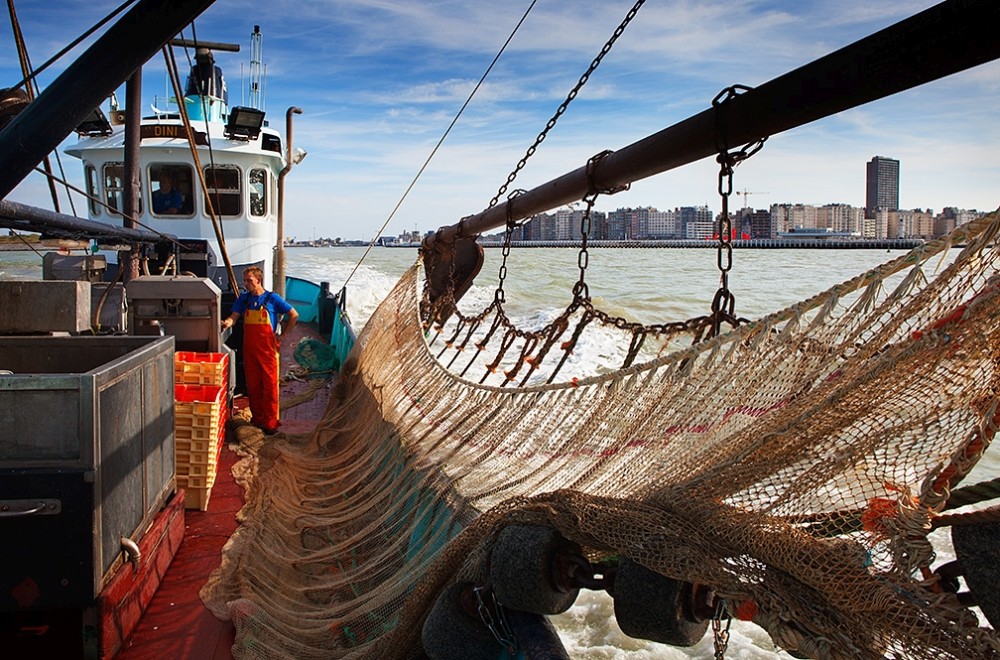On 1 January 2021, the United Kingdom withdrew from the European Union. As a result of Brexit, the UK is no longer part of the EU’s single market and customs union. To mitigate the negative impact of Brexit as far as possible, the European Union created the Brexit Adjustment Reserve (BAR). This EU fund provides financial support to organisations, companies and public institutions through concrete projects to alleviate and remedy the negative effects of Brexit.
VLIZ submitted two projects that were approved. These short-term projects began in the summer of 2022 and ended in late 2023. The expert BAR team of Flanders Innovation & Entrepreneurship (VLAIO) provided technical support and guidance for both BAR projects.
The first project revolved around the future of Flemish fisheries. European (including Flemish) fishing vessels are currently still allowed to operate in British coastal waters, but according to the Brexit withdrawal agreement, the European fishing rights in British waters will gradually decline by 25% by 2026. Together with the Flanders Research Institute for Agriculture, Fisheries and Food (ILVO) and a multidisciplinary advisory group, VLIZ identified the opportunities for developing new economic drivers for Flemish coastal fisheries and for strengthening the resilience of small-scale and sustainable niche fisheries. The latter have a strong potential for a transition towards sustainability.

As part of the project, VLIZ and ILVO acquired the knowledge necessary for outlining these niche fisheries, the distribution of the target species in nearby waters and their role in the food web, creating the required observation capacity, developing an appropriate business model and marketing local and seasonal added-value products as showpieces of the Flemish coast.
The second project pertains to the professional field of marine robotics. Brexit has had a profound impact on the position of partners from the UK as manufacturers and suppliers of sensors, marine observation technology and robotics. The commercial relations and market conditions for the exchange of products and services have changed. The dependence on British suppliers and service providers has become a bottleneck. The insecurity as to further cooperation and services relating to high-tech developments with partners in the UK restrict the quality assurance within VLIZ. Targeted investments are required to increase the capacity and resilience of the European marine robotics research and innovation domain post Brexit. With the support of the BAR resources, the position of VLIZ and the Flemish marine research community in the field of marine autonomous observation systems is reinforced and scaled up within a European context. As a result, VLIZ and the Flemish marine research community can establish new cooperative relations with specialised centres in the UK as equal partners. This competitive knowledge and infrastructure are crucially important for maintaining and strengthening the R&I potential in Flanders, as well as for supporting the rapidly growing sector of the Blue Economy in Flanders.